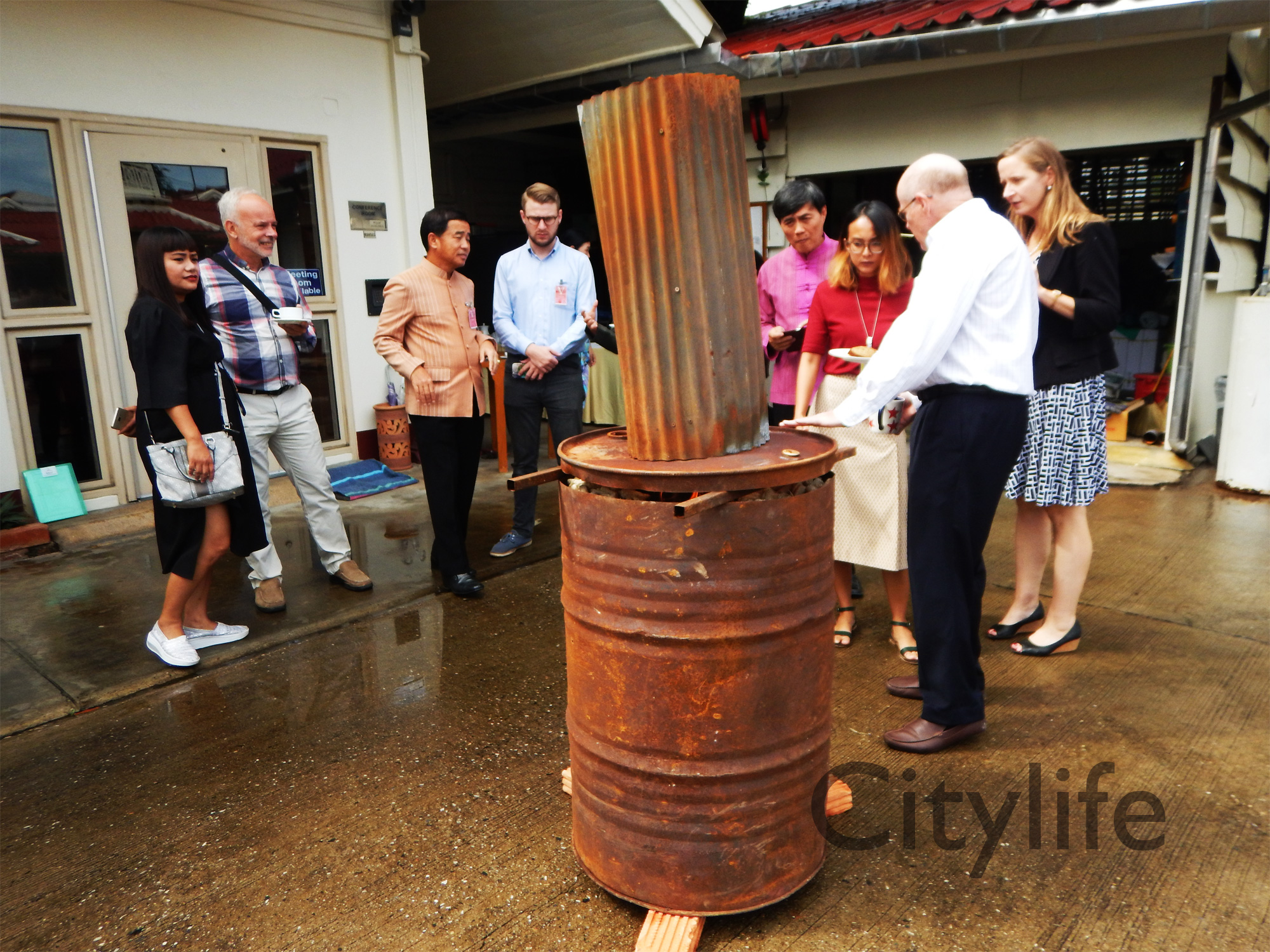CityNews – The US Consulate General Chaing Mai has declared that it will go fully BioChar after a conference today with Michael Shafer from Warm Heart introducing the facts and theory behind the burning technique, followed by a demonstration to officials and a training program for the gardeners at the consulate.

Exactly two months after the new US Consul General in Chiang Mai took her position, Jennifer Harhigh told Citylife that if the training goes well, she hopes to see the US Consulate fully BioChar by the end of the month.
In the conference, Michael Shafer discussed the impact of traditional burning techniques and identified the benefits of using BioChar. “65- 70% of people in Thailand still regularly use charcoal to cook with,” he said. “It creates a lot of smoke when its made in the factories, and you only see about 30% of the biomass retained as charcoal to sell. Its very ineficient. If you burn in a BioChar oven, you can retain 75% of that biomass, sell it as charcoal and not produce any smoke.”
Thailand is the 22nd largest contributor to carbon emissions globally and the 2nd largest consumer of artificial pesticides and fertilisers in Southeast Asia. “Thailand uses more pesticides than all of the United States,” said Shafer in the conference. “We need to get BioChar into the soil to absorb these chemicals, use them in water filtration and replace chemical fertilisers from China with organically seeded BioChar made locally.”
Chiang Mai has seen a 4.4 million ton increase in corn production in the last four years. Most of this waste is either burned or transported to the north’s main landfill in Hod District, where it is burned or where methane is siphoned off.
According to the local municipality representative at the meeting, over half a million tons of waste and bio-waste is dumped in the Hod landfill site every day. The landfill has been opened for 25 years. They also agreed to lobby the local municipality to make BioChar a local policy that can then be used as an example for other districts.
Shafer added that much of the burning we see on the roadside is in fact caused by local authorities who have no budget to clear roads so opt for a burn technique which often sees swathes of forest burnt down after they get out of control.
The US Consul General Jennifer Harhigh told Citylife that the US Embassy can be a good example to other authorities and businesses in Chiang Mai to switch to BioChar. 137 Pillars recently opted to go fully BioChar earlier this year after reading a Citylife article about Warm Heart and the cheap, easy methods involved with burning smoke-free and creating BioChar which is a commodity which can be used or sold. 137 Pillars currently is using their home produced BioChar to fertilise gardens, reduce water runoff after watering the gardens, absorb smells in their hotel rooms and to clean their linens.
You can read the full article here.